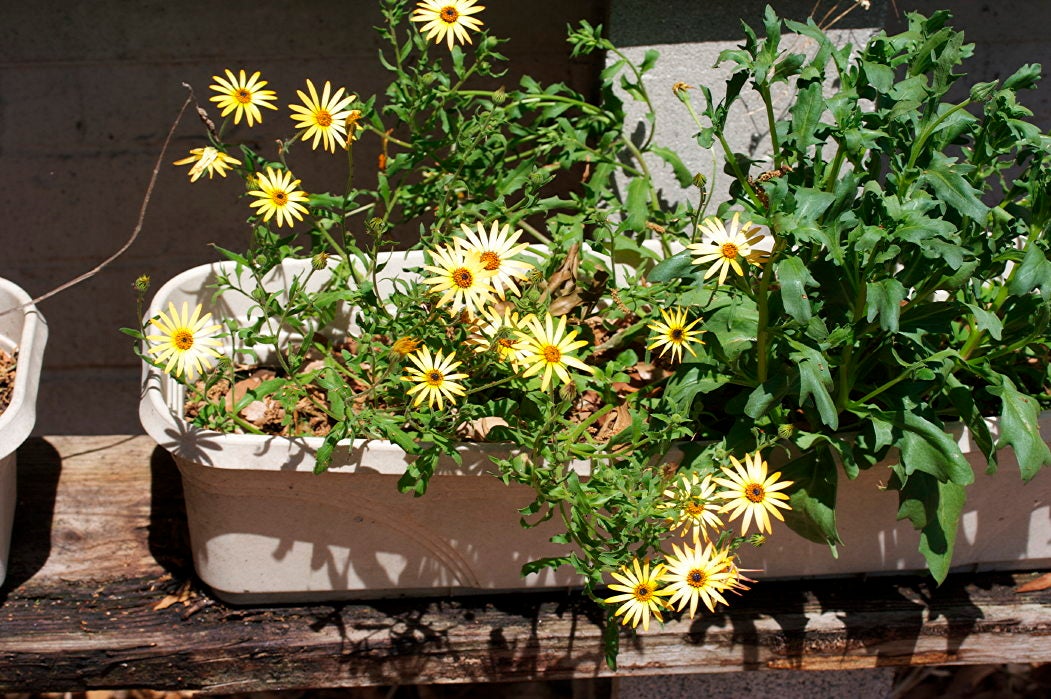Feeding Cape Marigolds: How To Fertilize Cape Marigolds


Sign up for the Gardening Know How newsletter today and receive a free copy of our e-book "How to Grow Delicious Tomatoes".
You are now subscribed
Your newsletter sign-up was successful
For many novice gardeners, the thought of growing and maintaining annual flowers from seed may be one that is very intimidating. These feelings continue to grow as one begins to delve further into specific feeding and watering requirements of various plants. Fortunately, even beginner gardeners are able to have great success when planting flowers that are robust, tolerant to adverse conditions, and bloom profusely. One such plant, the cape marigold, rewards growers with a deluge of bright and cheerful flowers, and both watering and feeding cape marigolds couldn’t be easier.
Feeding Cape Marigolds
Also known as Dimorphotheca, cape marigolds are small and brightly colored annual flowers. Low growing, these flowers are perfect for planting in areas which receive little rainfall. Due to their adaptability to various soil conditions, cape marigolds often spread when planted in locations with ideal growing conditions. As one may imagine, this too, means that the fertilizing needs of this plant will vary from location to location. For the most part, cape marigold plants don’t need much in the way of fertilizer. In fact, the plants tend to become leggy and unattractive when the soil becomes too rich, or even with excessive water.
How to Fertilize Cape Marigolds
Fertilizing cape marigold plants is very similar to that of feeding any other annual and perennial flowers. These are most commonly direct sowed into flower beds. As a means to encourage strong growth from the start, cape marigold fertilizer should be applied to a well amended and well-draining garden bed before the seeds are sown. Once the seeds have germinated and the plants become established, growers will need to pay special attention to the plants in their gardens. While some growers may find that feeding cape marigolds on a monthly basis is a necessity, others may find the garden soil to have an adequate amounts of nutrients. Your current soil conditions will dictate whether or not the plants require any additional feeding. Typically, the plants can get by with only a couple feedings throughout the growing season. If your soil isn’t the best, you can provide monthly applications of a balanced fertilizer – although, it’s a good idea to perform a soil test first to see what, if any, specific nutrients are lacking. This way you can adjust the feeding as necessary. Signs of over-fertilization may be apparent by lush, green growth with slowed flower production. Fertilizing cape marigolds should be done with a regular, balanced flower fertilizer composed of nitrogen, potassium, and phosphorus. As always, make certain to read fertilizer instructions carefully to ensure that it is safe for use in the garden.
Sign up for the Gardening Know How newsletter today and receive a free copy of our e-book "How to Grow Delicious Tomatoes".

Tonya Barnett has been gardening for 13 years. Flowers are her passion. She has transformed her backyard into a cut flower garden, which she regularly chronicles on her YouTube channel http://www.youtube.com/@tonyawiththeflowers.